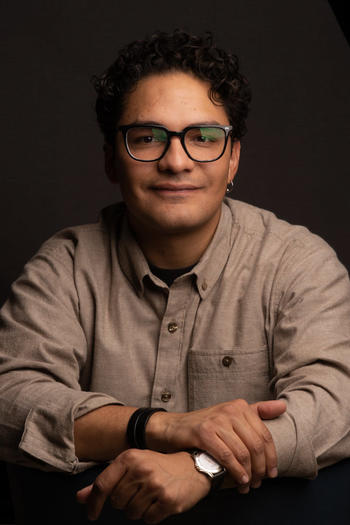Francisco Sebastián Ramírez Crespo

International Research Training Group "Temporalities of Future"
PhD Student
Sociology
Project: "Ethnography of Urban Planning in México City"
Education
|
Since 04/2024 |
International Research Training Group ‘Temporalities of Future’. |
|
Since 05/2023 |
PhD Candidate, El Colegio de México. |
|
08/2019 – 06/2021 |
Master in Social Science with specialty in Sociology, El Colegio de México. |
|
08/2016 – 12/2016 |
Exchange Student, Universidad de Ciencias Empresariales y Sociales, Argentina, DGCI-UNAM Scholarship Holder. |
|
08/2014 – 04/2019 |
Bachelor in Sociology, Facultad de Ciencias Politicas y Sociales, Universidad Nacional Autónoma de México. |
Work Experience
|
08/2022 |
Technical Coordinator, Course “Inequalities and Conflicts in contemporary city, ethnographic perspectives”, Instituto de Investigaciones Sociales, Universidad Nacional Autónoma de México |
|
08/2021 |
Consultant, Project “Tláhuac Urban Action Plan”, Ministry of Urban Development and Housing. |
|
04/2019 _ 08/2019 |
Research Assintant, Dr. Alejandra Leal, Verónica Crossa & Arturo Díaz, Project “Ethnography of Mobility Ministry”, El Colegio de México & Centro de Investigaciones Interdisciplinarias en Ciencias y Humanidades. |
|
01/2017 – 04/2019 |
Research Assistant, Dr. Orlandina de Oliveira & Minor Mora, Project “Youth and Social Inequality in contemporary México”, El Colegio de México |
Project: “Ethnography of Urban Planning in México City”
Supervisor: Dr. Nitzan Shoshan
My research project examines the strategies employed by urban planning experts and bureaucrats in Mexico City to enact a progressive social transformation agenda targeting inequality and corruption. This aligns with transformations in global urban governance, where the circulation of discourses and practices of governance based on ideals of expertise shape contemporary urban planning processes. Theoretically my work seeks to engage with anthropological and sociological literature on bureaucracies, expertise, and urban renewal, aiming to generate a more nuanced interpretation of how these planning regimes operate on a daily basis.
My work is concerned with understanding how different policies and regulatory instruments employed in contemporary urban renewal and planning processes are produced and designed. It focuses on the role played by various expert actors connected to both the bureaucratic work of urban planning and development institutions and global circuits of specialized knowledge in this process. Through an ethnographic lens that pays attention to the practices of these actors, my work seeks to comprehend the ways in which they envision new urban realities aimed at reducing socio-spatial inequalities and how they seek to produce them.
My inquiry stems from the assumption that urban planning is not solely the result of the linear application of rational and technical principles of spatial organization, but rather involves and is constituted by tensions among expert knowledge, aspirations regarding how urban space should be inhabited, and concrete interests of various actors. I hypothesize that these intersections between expertise, values and political agendas are aspects that enable planners to envision new urban realities aimed at reducing inequalities. However, this entails certain paradoxes, as in their daily work, these actors mobilize visions and ideals that legitimize and reproduce them.


